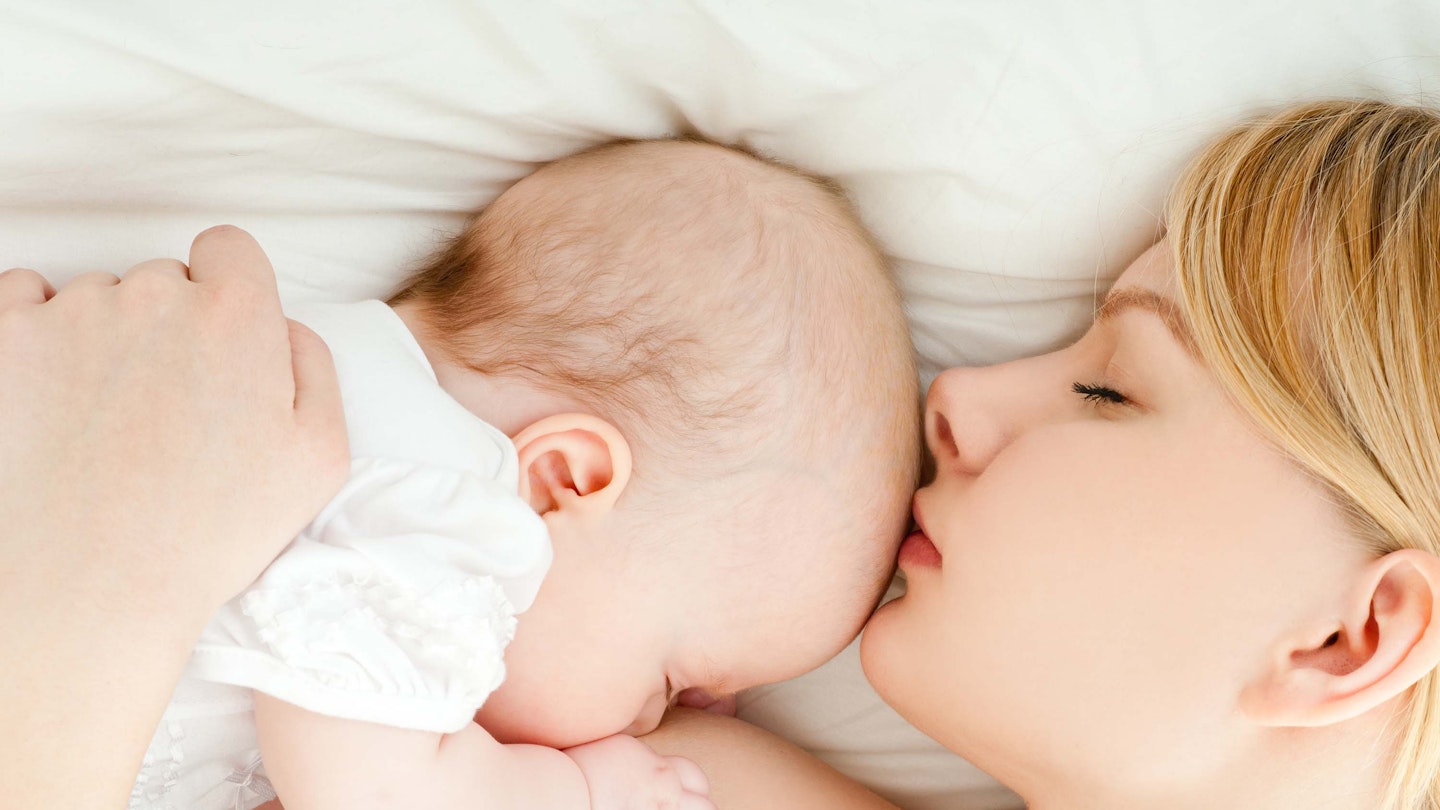MEET THE EXPERT: Dr Ellie Cannon is a GP, mum of two, and author of Keep Calm: The New Mum’s Manual (£10.99, Vermilion).
Don’t feel pressured to get back to your normal life - your body is still recovering and newborn babies are hard work.
Start tummy time
Your baby’s neck muscles are starting to develop. Help them get stronger by giving him a few minutes of tummy time daily. Tummy time is exactly what it says on the tin - putting your baby down on his tummy. By this age he’s probably strong enough to lift his head up slightly. This action uses his back and shoulder muscles, so helps him develop. But keep these sessions short and don’t be surprised if he’s not a fan: lots of babies aren’t keen.
Accept that your baby cries
It’s easy to feel as though you’re doing something wrong when your baby cries. But crying is just the way that he ommunicates. ‘The most common reasons for a baby to cry is if he’s hungry, sleepy or has a full nappy,’ says Ellie. ‘But he might also cry because he’s got an itchy foot or because he doesn’t like the ringtone on your phone. You’ll get better at working out what the problem is - trust yourself and you’ll soon start to get a feel for what makes him wail.’
Buy a baby bath support
If you’re nervous about bathing your baby – and he’ll be pretty wriggly and slippery by four weeks – buy a bath support. Foam bath support, £7.99, mothercare.com.
Look out for postnatal depression
The baby blues are part and parcel of life as a new mum. Postnatal depression isn’t. ‘If you’re consistently feeling guilty, irritable or weepy for more than a couple of weeks, and those feelings aren’t easing, talk to someone you trust about the way you’re feeling,’ suggests Ellie. ‘Ask them to come with you to see your GP or health visitor.’ There’s also help available from The Association for Post Natal Illness helpline on 0207 386 0868, or visit apni.org.
Take care of yourself too
You’re exhausted. You’re either feeding or cleaning up after your baby. And you’ve got the after effects of pregnancy:
-
Piles. Think of piles as varicose veins in your bottom. Lots of women get them after birth. They can make going to the loo sore. ‘Straining makes them worse,’ says Ellie. ‘Drink lots of water and eat stool-softening food, like fruit.’
-
Bleeding. ‘It’s normal to bleed for up to six weeks after the birth,’ says Ellie. ‘There can be quite a lot of blood at first but it should get lighter. If it doesn’t, talk to your midwife.’
-
Anaemia. Blood loss can leave you low in iron, which affects your eneergy levels, mood, and abiliity to heal. ‘If you think you might be anaemic, see your GP,’ says Ellie. ‘A blood test will tell you if you’re lacking in iron and you’ll be prescribed iron tablets.’
